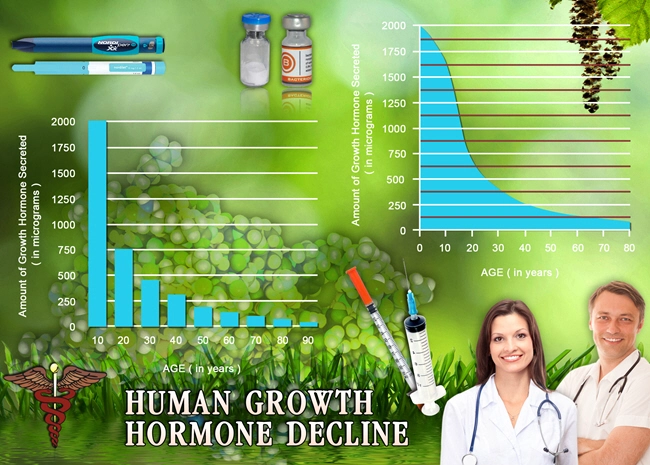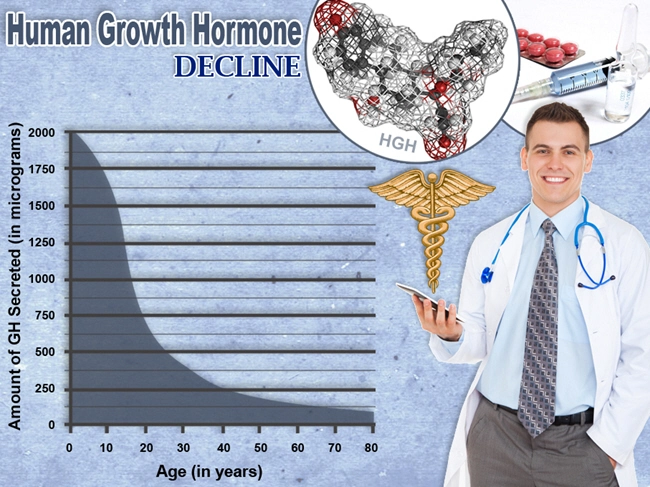
Introduction
The intricate relationship between urological and cardiovascular health is a critical area of study, particularly for American males. As both systems are vital to overall well-being, understanding their interconnectedness can lead to improved health outcomes and preventive strategies. This article delves into the links between these two systems, highlighting the importance of integrated health management for men across the United States.
The Urological-Cardiovascular Connection
Urological health encompasses the function and diseases of the urinary tract and the male reproductive system. Cardiovascular health, on the other hand, refers to the condition of the heart and blood vessels. Recent research has illuminated a significant association between these two areas of health. For instance, erectile dysfunction (ED), a common urological issue, is often an early indicator of cardiovascular disease (CVD). The vascular system's role in achieving and maintaining an erection means that any impairment in blood flow can signal underlying heart issues.
Erectile Dysfunction as a Cardiovascular Warning Sign
For many American men, ED serves as a crucial warning sign for cardiovascular health. Studies have shown that men with ED are at a higher risk of developing CVD. The reason behind this link is the shared risk factors, such as hypertension, diabetes, and smoking, which adversely affect both the vascular and urological systems. Recognizing ED as a potential precursor to heart disease can prompt earlier medical intervention, potentially saving lives.
Prostate Health and Cardiovascular Implications
Prostate health is another critical aspect of urological health that intersects with cardiovascular well-being. Benign prostatic hyperplasia (BPH), a condition where the prostate gland enlarges, can lead to urinary symptoms that impact quality of life. Interestingly, men with BPH are also at an increased risk of developing CVD. The exact mechanisms are still under investigation, but it is believed that inflammation and hormonal changes play a role in this association.
Preventive Measures and Lifestyle Interventions
Given the strong link between urological and cardiovascular health, preventive measures and lifestyle interventions are paramount. Regular check-ups with both a urologist and a cardiologist can help monitor and manage these conditions effectively. Adopting a heart-healthy diet, engaging in regular physical activity, and avoiding tobacco use are crucial steps that American men can take to safeguard both their urological and cardiovascular health.
The Role of Medications and Treatments
Medications used to treat urological conditions can also have implications for cardiovascular health. For example, certain medications for BPH may affect blood pressure, necessitating careful monitoring by healthcare providers. Conversely, treatments for cardiovascular conditions, such as beta-blockers, can impact sexual function, highlighting the need for a holistic approach to treatment planning.
Conclusion
The connection between urological and cardiovascular health is undeniable and underscores the importance of integrated care for American males. By understanding and addressing the shared risk factors and early warning signs, men can take proactive steps to maintain their overall health. Collaborative efforts between urologists and cardiologists, combined with patient education and lifestyle modifications, can lead to better health outcomes and a higher quality of life for men across the nation.
In summary, the nexus of urological and cardiovascular health is a vital consideration for American males. By fostering awareness and encouraging preventive measures, we can enhance the well-being of men and mitigate the risks associated with these interconnected health domains.
Contact Us Today For A Free Consultation
Dear Patient,
Once you have completing the above contact form, for security purposes and confirmation, please confirm your information by calling us.
Please call now: 1-800-380-5339.
Welcoming You To Our Clinic, Professor Tom Henderson.

- Urological Health Guide: Understanding Conditions and Enhancing Wellness in American Men [Last Updated On: March 3rd, 2025] [Originally Added On: March 3rd, 2025]
- Preventing Urological Infections: Hydration, Hygiene, and Health Strategies for American Males [Last Updated On: March 16th, 2025] [Originally Added On: March 16th, 2025]
- Heart Health and Urology: Vital Connections in American Men's Well-being [Last Updated On: March 18th, 2025] [Originally Added On: March 18th, 2025]
- Urological Health and Fertility: Key Conditions, Diagnosis, and Treatment for American Males [Last Updated On: March 19th, 2025] [Originally Added On: March 19th, 2025]
- Urological Health Tips for American Men in the Workplace [Last Updated On: March 19th, 2025] [Originally Added On: March 19th, 2025]
- Genetics and Urological Health: Insights for American Men's Proactive Care [Last Updated On: March 19th, 2025] [Originally Added On: March 19th, 2025]
- Managing Urological Pain in Men: Causes, Diagnosis, and Treatment Strategies [Last Updated On: March 19th, 2025] [Originally Added On: March 19th, 2025]
- Urological Health Guide: Symptoms, Conditions, and Care for American Men [Last Updated On: March 19th, 2025] [Originally Added On: March 19th, 2025]
- Modern Urology Advances: Minimally Invasive, Personalized Care for American Males [Last Updated On: March 20th, 2025] [Originally Added On: March 20th, 2025]
- Smoking's Profound Impact on Urological Health in American Men: Risks and Cessation Benefits [Last Updated On: March 21st, 2025] [Originally Added On: March 21st, 2025]
- Urological Health and Insurance: Navigating Coverage for Men's Well-being [Last Updated On: March 21st, 2025] [Originally Added On: March 21st, 2025]
- Obesity's Impact on Urological Health in American Men: Risks and Management Strategies [Last Updated On: March 22nd, 2025] [Originally Added On: March 22nd, 2025]
- Exercise and Urological Health: Enhancing Wellness in American Men [Last Updated On: March 22nd, 2025] [Originally Added On: March 22nd, 2025]
- Hydration's Crucial Role in Urological Health for American Men: Tips and Insights [Last Updated On: March 22nd, 2025] [Originally Added On: March 22nd, 2025]
- Stress and Urological Health in American Males: Impacts and Management Strategies [Last Updated On: March 22nd, 2025] [Originally Added On: March 22nd, 2025]
- Urological Health Education: Vital for American Males' Well-being and Longevity [Last Updated On: March 23rd, 2025] [Originally Added On: March 23rd, 2025]
- Supplements Supporting Urological Health in American Men: Saw Palmetto, Beta-Sitosterol, Cranberry [Last Updated On: March 23rd, 2025] [Originally Added On: March 23rd, 2025]
- Urological Rehabilitation: Enhancing American Men's Health and Quality of Life [Last Updated On: March 23rd, 2025] [Originally Added On: March 23rd, 2025]
- Urological Health: Key to Successful Family Planning for American Males [Last Updated On: March 23rd, 2025] [Originally Added On: March 23rd, 2025]
- Urological Health in Sports: Risks, Prevention, and Management for Male Athletes [Last Updated On: March 23rd, 2025] [Originally Added On: March 23rd, 2025]
- Urological Health Guide for American Males: Conditions, Procedures, and Prevention [Last Updated On: March 23rd, 2025] [Originally Added On: March 23rd, 2025]
- Urological Health and Sleep: A Comprehensive Guide for American Men [Last Updated On: March 24th, 2025] [Originally Added On: March 24th, 2025]
- VA's Comprehensive Urological Care for American Male Veterans: Services and Support [Last Updated On: March 24th, 2025] [Originally Added On: March 24th, 2025]
- Urological Surgery Recovery Guide for American Males: Holistic Care and Tips [Last Updated On: March 24th, 2025] [Originally Added On: March 24th, 2025]
- Urological Health and Mental Well-being: A Holistic Approach for American Men [Last Updated On: March 24th, 2025] [Originally Added On: March 24th, 2025]
- Urological Health: Vital Preventive Care for American Men's Well-being [Last Updated On: March 25th, 2025] [Originally Added On: March 25th, 2025]
- Urological Health for American Males: Hygiene, Habits, and Holistic Care [Last Updated On: March 25th, 2025] [Originally Added On: March 25th, 2025]
- Urological Health: Importance of Early Detection and Screening for Young American Males [Last Updated On: March 25th, 2025] [Originally Added On: March 25th, 2025]
- Urological Health and Mental Well-being: A Holistic Approach for American Men [Last Updated On: March 25th, 2025] [Originally Added On: March 25th, 2025]
- Urological Health: Breaking Stigma and Addressing Psychological Impacts in American Males [Last Updated On: March 25th, 2025] [Originally Added On: March 25th, 2025]
- Urological Cancers in American Males: Risks, Detection, and Prevention Strategies [Last Updated On: March 26th, 2025] [Originally Added On: March 26th, 2025]
- Urological Health Strategies for American Men Over 50: Screening, Lifestyle, and Management [Last Updated On: March 26th, 2025] [Originally Added On: March 26th, 2025]
- Medications' Impact on Urological Health: Guidance for American Men [Last Updated On: March 26th, 2025] [Originally Added On: March 26th, 2025]
- Urological Health Essentials for American Males: Conditions, Screenings, and Lifestyle Impact [Last Updated On: March 26th, 2025] [Originally Added On: March 26th, 2025]
- Urological Health's Impact on American Men's Social Lives and Well-being [Last Updated On: March 26th, 2025] [Originally Added On: March 26th, 2025]
- Urological Health: Key to Longevity for American Men [Last Updated On: March 26th, 2025] [Originally Added On: March 26th, 2025]
- Managing Urological Health: Essential Travel Tips for American Men [Last Updated On: March 26th, 2025] [Originally Added On: March 26th, 2025]
- Technological Advances Revolutionizing Urological Diagnosis for American Males [Last Updated On: March 26th, 2025] [Originally Added On: March 26th, 2025]
- Dietary Guide for Enhancing Urological Health in American Men [Last Updated On: March 27th, 2025] [Originally Added On: March 27th, 2025]
- Environmental Impacts on Urological Health in American Males: Risks and Mitigation Strategies [Last Updated On: March 27th, 2025] [Originally Added On: March 27th, 2025]
- Managing Urological Health and Chronic Illness in American Men: Practical Strategies [Last Updated On: March 27th, 2025] [Originally Added On: March 27th, 2025]
- Urological Health Myths Debunked: Empowering American Men with Facts [Last Updated On: March 27th, 2025] [Originally Added On: March 27th, 2025]
- Exercise and Urological Health: Safe Practices for American Males [Last Updated On: March 27th, 2025] [Originally Added On: March 27th, 2025]
- Alcohol's Impact on Urological Health: Risks and Prevention for American Men [Last Updated On: March 27th, 2025] [Originally Added On: March 27th, 2025]
- Urological and Bone Health: A Vital Connection for American Males [Last Updated On: March 27th, 2025] [Originally Added On: March 27th, 2025]
- Urological Health and Immunity: Strategies for American Males [Last Updated On: March 28th, 2025] [Originally Added On: March 28th, 2025]
- Urological Health in U.S. Men's Campaigns: Importance, Barriers, and Strategies [Last Updated On: March 28th, 2025] [Originally Added On: March 28th, 2025]
- Urological Health and Skin Care: A Vital Connection for American Men [Last Updated On: March 28th, 2025] [Originally Added On: March 28th, 2025]
- Urological Health's Impact on American Men's Quality of Life: A Comprehensive Overview [Last Updated On: March 29th, 2025] [Originally Added On: March 29th, 2025]
- Urological Health Linked to Hearing Loss in American Males: Insights and Prevention [Last Updated On: March 29th, 2025] [Originally Added On: March 29th, 2025]
- Urological Health and Vision: Critical Connections for American Men's Well-being [Last Updated On: March 30th, 2025] [Originally Added On: March 30th, 2025]
- Urological Health: Empowering American Men's Sexual Wellness Through Education and Care [Last Updated On: March 30th, 2025] [Originally Added On: March 30th, 2025]
- Urological Health: Vital for Men's Well-being and Advocacy in the U.S. [Last Updated On: April 3rd, 2025] [Originally Added On: April 3rd, 2025]
- Urological Health Linked to Dental Care: Insights for American Men [Last Updated On: April 3rd, 2025] [Originally Added On: April 3rd, 2025]
- Urological and Respiratory Health Interplay in American Males: Impacts and Management [Last Updated On: April 3rd, 2025] [Originally Added On: April 3rd, 2025]
- Urological Health in American Men: Research, Impact, and Lifestyle Factors [Last Updated On: April 5th, 2025] [Originally Added On: April 5th, 2025]
- Urological Health: Impact, Policy Needs, and Advocacy for Men's Well-being [Last Updated On: April 7th, 2025] [Originally Added On: April 7th, 2025]
- Urological Health Education: Vital for American Men's Well-being and Proactive Care [Last Updated On: April 7th, 2025] [Originally Added On: April 7th, 2025]
- Urological Health's Impact on American Men's Careers: Proactive Management and Workplace Support [Last Updated On: April 8th, 2025] [Originally Added On: April 8th, 2025]
- Urological and Musculoskeletal Health: Vital Connections for American Men [Last Updated On: April 9th, 2025] [Originally Added On: April 9th, 2025]
- Urological and Neurological Health Nexus: Essential Insights for American Males [Last Updated On: April 9th, 2025] [Originally Added On: April 9th, 2025]
- Urological and Endocrine Health: A Vital Connection for American Males [Last Updated On: April 9th, 2025] [Originally Added On: April 9th, 2025]
- Urological and Digestive Health: Interconnected Systems and Holistic Care for American Males [Last Updated On: April 10th, 2025] [Originally Added On: April 10th, 2025]
- Integrating Urological Health into Men's Programs: Needs and Benefits for American Males [Last Updated On: April 11th, 2025] [Originally Added On: April 11th, 2025]
- Urological Health: Vital for American Men's Well-being and Longevity [Last Updated On: April 12th, 2025] [Originally Added On: April 12th, 2025]
- Urological Health's Impact on American Men and Family Dynamics [Last Updated On: April 12th, 2025] [Originally Added On: April 12th, 2025]
- Urological Health and Reproductive Wellness in American Men: A Comprehensive Guide [Last Updated On: April 12th, 2025] [Originally Added On: April 12th, 2025]









